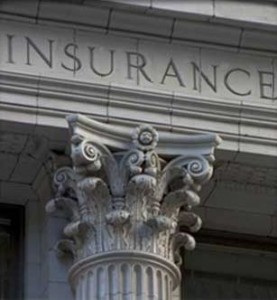Measuring the McCarran-Ferguson Act’s Antitrust Immunity
 That insurance regulation rests primarily with the fifty states has become axiomatic and even cliché. Around the country are operational state insurance commissions, and for much of the twentieth century, the federal government has let these agencies be. The Employee Retirement Income Security Act’s (ERISA) sweeping preemptive force is cabined by a savings statute that allows the business of insurance to escape federal employee benefit plan regulation. And the McCarran-Ferguson Act, generally speaking, provides that three comprehensive federal statutes sanctioning anti-competitive, unfair, and deceptive market activity—namely the Sherman Act, the Clayton Act, and the Federal Trade Commission Act—do not reach the insurance industry inasmuch as the business of insurance is regulated by the states.
That insurance regulation rests primarily with the fifty states has become axiomatic and even cliché. Around the country are operational state insurance commissions, and for much of the twentieth century, the federal government has let these agencies be. The Employee Retirement Income Security Act’s (ERISA) sweeping preemptive force is cabined by a savings statute that allows the business of insurance to escape federal employee benefit plan regulation. And the McCarran-Ferguson Act, generally speaking, provides that three comprehensive federal statutes sanctioning anti-competitive, unfair, and deceptive market activity—namely the Sherman Act, the Clayton Act, and the Federal Trade Commission Act—do not reach the insurance industry inasmuch as the business of insurance is regulated by the states.
This state-centric arrangement has come under fire in the last couple of decades, with the federal government staking its ground regulating insurance first around the periphery and then increasingly at the core of the insurance industry. Some federal statutes make certain practices with certain aspects of an application for or policy of insurance illegal, whether proscribing genetic discrimination, as the Genetic Information Nondiscrimination Act (GINA) does, or limiting the pre-existing condition as the Health Insurance Portability and Accountability Act (HIPAA) did. Also regulating health insurance at the federal level is the monumental Patient Protection and Affordable Care Act of 2010 (PPACA or “Obamacare” as it is more popularly known). The PPACA statutorily mandates that some health insurance policies and group health plans eliminate certain provisions altogether, such as lifetime limits on health benefits and the pre-existing condition limitation. Perhaps even more radically, the PPACA delegates authority to the Department of Health and Human Services to regulate the contents of health insurers’ and plans’ summary of benefits and even the policies themselves.
